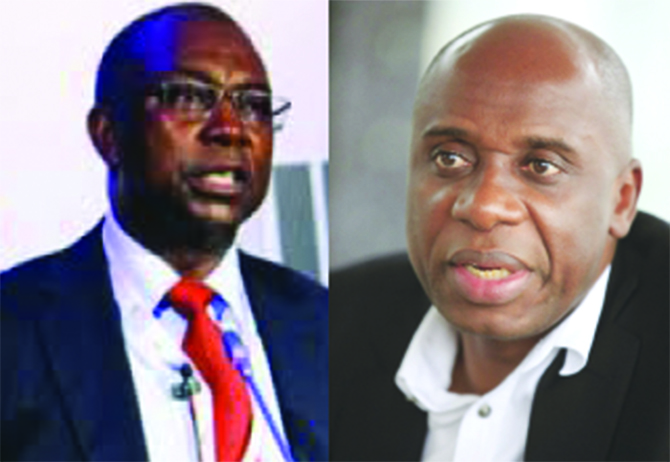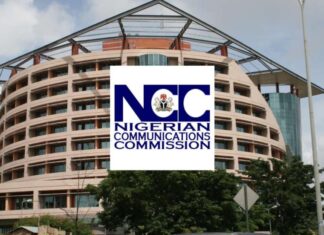Lagos State Transport Commissioner, Dayo Omobereola, reels out his 16-year public transport programme befitting a megacity of world standard.
Correspondent SAM NWOKORO, reports from the maiden lecture on public transportation organised by Lagos Traffic Radio.
The event achieved its mission of capturing the minds of transport stakeholders and acquainting them with the ambition of modernising every facet of public transport in Lagos.
Transport Commissioner, Dayo Omobereola, enumerated a long term agenda, not a cut and fix one that may require tinkering all the time.
The plan is to meet the future transportation needs of a population now estimated at 20 million and expand it into 2030, the deadline set by the United Nations for all governments the world over to meet certain criteria in service delivery.
It is not in form of a law. But the push by the UN for perfection in institutions’ functionality to fast-track the Sustainable Development Agenda (SDA) has been emphasised by UN Secretary General, Ban Ki-Moon.
Omobereola left no one in doubt at the lecture – which was attended by Transportation Minister, Rotimi Amaechi – that he plans to meet that standard.
He explained why the current mass transit can no longer cope with the state’s increasing socio-economic profile which has a steady inflow of investors and records new business more than any other state in Nigeria.
Lagos economy
Said he: “Lagos economy constitutes 25 per cent of national GDP. Its economy is bigger than that of two or three African countries put together. Some 45 per cent or more of the country’s workforce reside in Lagos.
“The population is growing at an astronomical pace and demands massive investments in public infrastructure beyond government’s purse alone.
“Road vehicle presence is soon going to increase by 25 per cent. Car hire-ship is about 80 per 100 persons in the city, and may increase to a projected 200 per 800 people by 2025.
“All local government roads in the city constitute about 64 per cent of the state’s road network. Twenty-two million people are moved around on daily basis. Ninety per cent of all transit movement is done by road.
“Cars occupy 90 per cent of road network. Mini-buses 72 per cent. And by road usage, cars take up 65 per cent.
“Terrifying statistics of course, calling for proactive approaches to contain in era of high incidence of migration.”
Multi-modal transport system
Other areas which Omobereola said cost huge expenditure include people travelling farther distance between points as economic activities increase, requiring an efficient multi-modal transport system.
He cited residents of neighboring Ogun State and city outskirts who commute to Lagos each day, increasing motor accidents, pollution, and loss of man-hour in transit.
Another challenge is inadequate transport infrastructure, part of which the government wants to solve by constructing the Fourth Mainland Bridge, as well as the Marina-Okokomaiko Highway, now at 80 per cent completion.
Omobereola spoke of “regulatory issues” Lagos wants to sort out with the federal government to facilitate multi-modal transport schemes, explaining that high capacity buses used for urban mass transit contribute to pressures on roads and pollution.
The 16-year transport development plan seeks to lessen the dominance of buses and heavy duty trucks by developing rail and water transport segments.
“Buses will be eco-friendly environment-wise and by that, we will be mitigating the effects of climate change,” he said.
Road factor
Road development is geared to attain efficient use of available land and space.
“The Ministry of Transportation identified areas in the state that need to be developed as residential or commercial areas. So we have to plan with the Ministry of Physical Planning.
“It will be done in such a manner that residential districts connect quickly into major road arteries so as to save the man-hour lost by passengers.
“For instance, 40 per cent of people working in Lagos come and return to Ogun State daily. New cities are being planned in these places, including Ikorodu and others, so as to decongest the city centre and mitigate man-hour lost in transit.
“We are planning new six urban rail lines so that not much people depend on road alone for intra-city movement.
“We are working on the possibility of integrated ticketing system so that one ticket you buy can solve your mobility schedule for the day.
“We are also creating cycle lanes along rail and highway corridors on the Marina-Okoko Highway, Epe Expressway, Ikorodu, Ifo, et cetera.”
Bus, water routes
Omobereola disclosed that 14 BRT (Bus Rapid Transit) routes have been mapped out in the city which will become functional soon.
To date, the BRT system has ferried five million passengers, he added, and in the years ahead “all the routes will run 24/7 to meet the transport needs of the economy of the state which is currently witnessing record investment inflows from foreign and local investors.”
About 20 water routes will be developed close to major arterial roads and rails. “There would also be a functional cable car services for commuting from point to point and for the promotion of tourism in the state.”
The ministry has identified 450 routes for development which will also include orbital routes to the Fourth Mainland Bridge.
The grand scheme will be connected to “the 28 activities centres” to ease movement, with hope that by 2034, anyone can leave his car at home and use public transport, thereby cutting back on carbon emissions.
“Turn-around time in public transportation will be reduced to one hour from the current 5.6 hours. At least 50 per cent carbon emission cut back is projected to be achieved.”
Omobereola’s antecedents
Mobereola, who has a PhD in transport economics, is former managing director of Lagos Metropolitan Area Transport Authority (LAMATA) which plans and regulates transport in the state.
He has worked at senior management levels in the transport sector in Eastern Europe, the United Kingdom, and Nigeria.
He specialises in transport management, corporate management and economic analysis, multi-modal studies, congestion cost, economic analysis of shipping and railway demand, and behaviour impact on passenger travels.
He was the first team leader for the actualisation of the Lagos Urban Transport Project, including LAMATA.
He selected engaged, managed, and coordinated the large multi-disciplinary teams of planners, economists, engineers on the transport project, and liaised with the World Bank and other international agencies.













